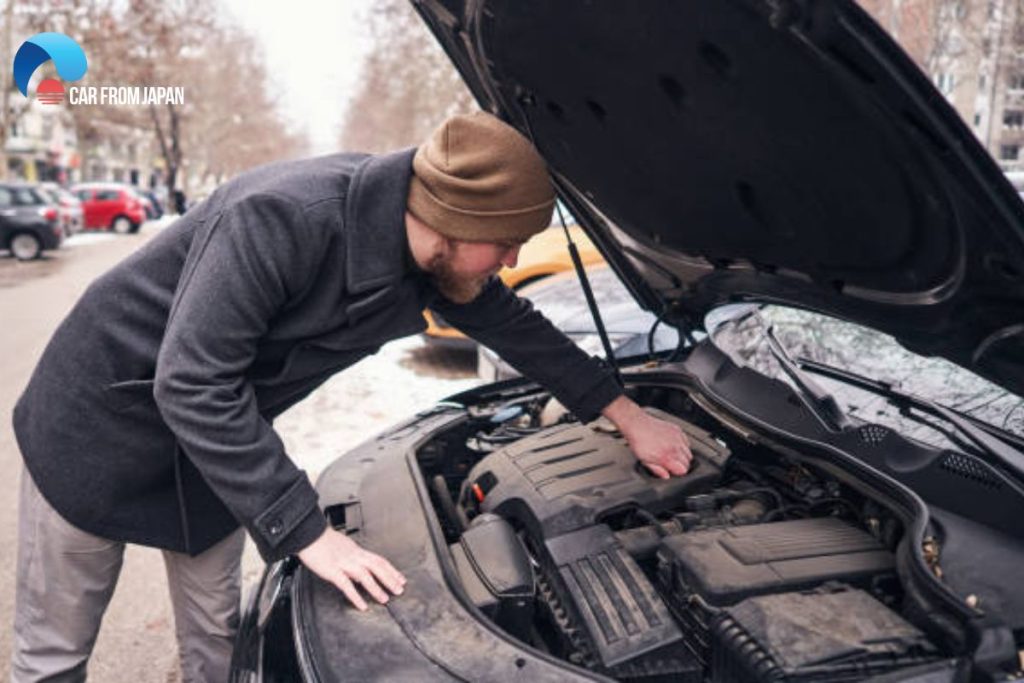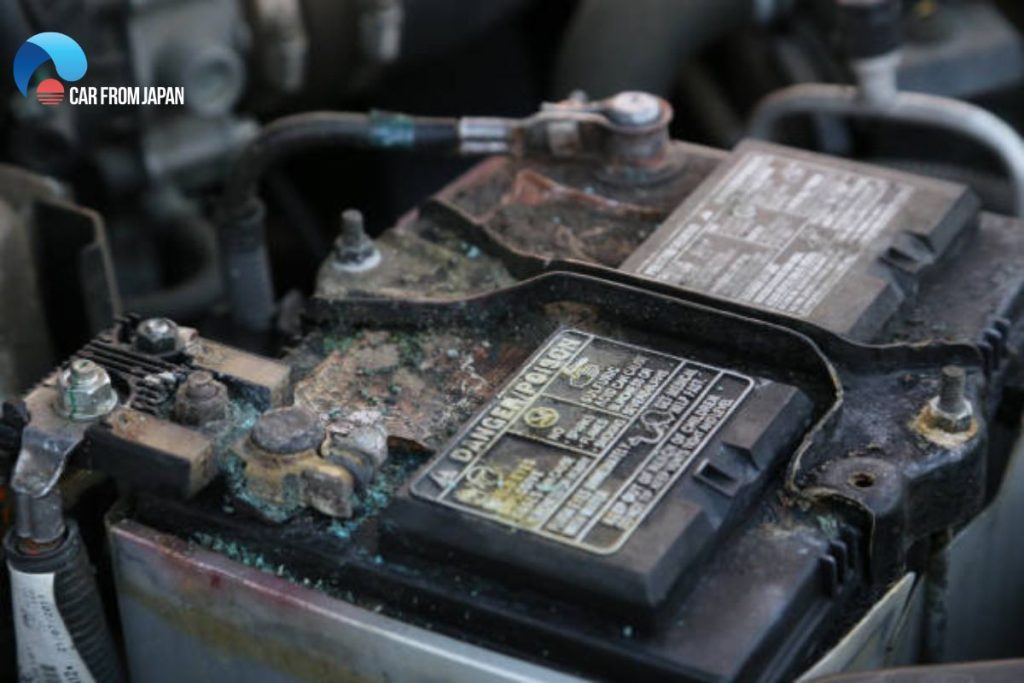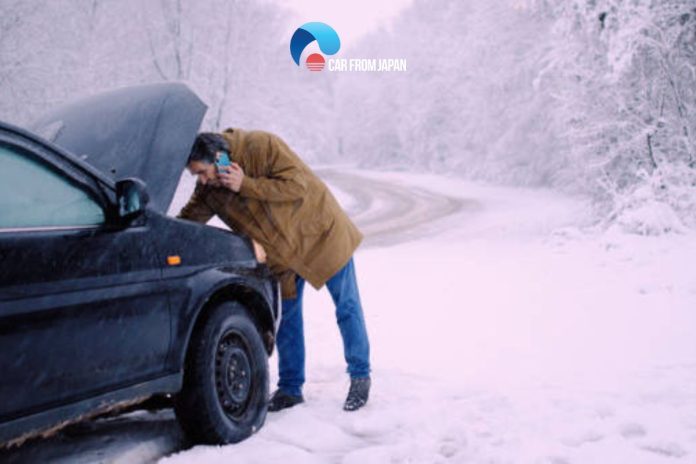Your car faces numerous problems with the changing weather. Some of which are car wont start when cold but starts when warm.
If you, too, are facing this issue or have ever faced it, you are at the right place. Here you will come to know about the four most common reasons why a car stops working in the cold. So, let’s begin!
Contents
Why Cold Weather is the Ultimate Test for Your Car?
Cold weather is the ultimate stress test for your vehicle because it simultaneously weakens its power source while massively increasing the effort needed to start.
First and foremost is the battery. The chemical reaction that generates electricity inside your battery slows down significantly in the cold, drastically cutting its power output. This loss of “Cold Cranking Amps” (CCA) happens at the exact moment the engine demands the most energy.
That demand for energy skyrockets because your engine oil, which is normally a free-flowing liquid, thickens into a viscous sludge, almost like cold molasses. The starter motor must fight through this incredible resistance to turn the engine over. Metal components also contract, making everything tighter and harder to move.

Car Wont Start When Cold But Starts When Warm
There could be numerous reasons for a car not starting at low temperatures. But the possibility of these four reasons is high. What are these four reasons? Let’s find out now!
Using the wrong oil
Pouring the wrong oil in your car is like feeding the wrong food to a kid. Whether your car is old or new, it’s necessary to check the car’s manual for what is the right oil for your vehicle.
Some cars demand thicker oil, approximately 10 to 30 W, and some may demand thinner oil, approximately 5 to 20 W. However, the thin oil is ideal for winters as the engine can ignite it easily.
On the other hand, thicker oil is worse for winters as the molecules start clustering when temperatures drop below zero.
So, avoid using thicker oil in winters or as described in the manual of your car, because it could be the reason why the car won’t start when cold, but starts when warm.
Bad battery
When your car is ideal, it can result in the chemical in the battery holding back. This eventually causes the battery to stop working permanently or temporarily. Moreover, replacing the battery after every three years is preferable.
You might find it quite expensive; it’s the only way to drive safely in the winter. If you have just replaced your battery and still, the car still isn’t starting, contact the experts or use some DIY maintenance tips.
To fix the battery temporarily, you can use a jumper cable or a trickle charger for the car. So, make sure that you buy a new battery in a regular manner to avoid any big issues.

Water in the fuel line
Everyone knows that nothing could be worse than having water in the fuel line. But it’s not the case in winter. It’s natural to get water in the fuel lines, and gasoline not reaching the engine can stop the entire functioning.
Besides, the fuel lines freeze, and when condensed with the temperature change, only water is left everywhere. Fuel with low alcohol or using the premium fuel is the only solution to stop the fuel lines from freezing.
Moreover, on normal days, water could be filled in fuel lines while washing or doing something else. Carelessness toward such a situation can even lead to the replacement of an entire fuel line.
So, consult the capable mechanic in your area whenever you are in such a situation.
Fault in the carburetor
The older cars face this problem as there is a tool called a carburetor, which mixes gasoline and oxygen to achieve internal combustion. Dirt or malfunctioning in the carburetor during traveling is the reason behind a car not working.
If you know you are using the right oil, the battery is working fine, and there is no water in the fuel line, check the carburetor. For help, contact the nearby mechanic as well.
Faulty engine sensors
When starting your engine in cold weather, use a higher fuel combination. A faulty coolant temperature sensor or a faulty air intake temperature sensor might result in a lean air/fuel combination, making it difficult to start the engine in cold weather.
If your engine light is illuminated, have your technician examine the computer system for codes, or get a code reader/scan tool and do it yourself.
Moreover, you can opt for basic DIY auto maintenance lowers repair costs, prevents breakdowns, and extends the life of your vehicle.
FAQs on Car Won’t Start When Cold But Starts When Warm
What causes a sluggish start in the morning?
A defective engine coolant temperature switch (sensor), a malfunctioning idle air control (IAC) valve, vacuum and EGR leaks, insufficient fuel supply or pressure (clogged fuel filter, injectors), and tainted or old gasoline are some of the causes of difficulty starting.
Why does it take so long for my car to warm up?
A lack of regular car maintenance is frequently cited for troubles with a cold start. Unchecked worn spark plugs and plug wires, clogged filters, and corroded battery connections make it difficult for the engine to start.
When a car warms up and then fails to start?
This issue is quite similar to vapor lock. A leaky fuel pressure regulator (FPR) or fuel injector can also cause hard warm starts.
A gasoline pressure dampener can sometimes induce the same symptoms. A worn FPR or fuel injector may first yield to pressure in the fuel line and then cease leaking.
Why is starting a car engine simpler on a warm day?
The internal resistance of a car battery lowers when the temperature rises (for example, on a hot day). As a result, the battery can produce a big current, making it easier to start the automobile engine.
Why do cold starts use extra fuel?
Even after the gasoline is sufficiently evaporated, some of it condenses on the cool elements of the engine before it can be burnt. The engine requires additional fuel to start in order to get a combustible air-fuel combination despite vapor and condensation issues.
Check out this video from Smart Drive Test to learn more about how to start your vehicle in cold weather and clean it off!
Final Thoughts
Ultimately, a car that won’t start when cold but runs fine when warm is often due to problems like a struggling battery, an inaccurate coolant temperature sensor, or perhaps fuel not getting where it needs to go effectively in the cold. Identifying the specific culprit from these common reasons is the crucial step towards a reliable start, no matter the weather, and preventing further inconvenience.




I wish myself good luck